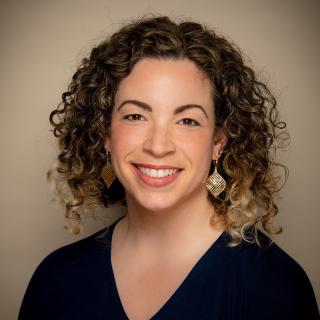The knocks on the wooden door of Stephanie Edler’s office come every day, all week long. On a recent Wednesday, two girls visited Edler, one after the other, just before lunch, arriving with smiles. One, Max*, with wispy bangs and big, doe eyes, started seeing Edler, a mental health care coordinator embedded full-time in Seattle’s Asa Mercer Middle School, last year. Max’s visits were prompted by her worsening depression, which caused her to feel isolated and withhold food from herself.

“I used to love reading and writing, but I had stopped those things,” says Max, who loves music and theater, too. “Ms. Stephanie made me really comfortable. Now I do the things I love again, and I’m getting good grades.”
“At first I thought it was weird to come talk to Ms. Stephanie, but I thought I was going crazy, so I did it,” says the other morning visitor, Kiara*, who last year struggled with panic attacks and a self-imposed pressure to succeed. “I’m doing much better now,” says the sweats-clad girl who loves basketball. She is now using deep breathing and other coping skills to manage her anxiety.
Energetic, with a high, reddish ponytail and long, mint-colored nails, Edler has been at Mercer for five years, one of three mental health care coordinators provided to three area middle schools through Sound Mental Health’s Middle School Support Project. She has a bachelor’s degree in psychology and a master’s in counseling, and she has helped Mercer Middle School students with depression, anxiety, suicidal ideation, self-harm, family tension, abuse, the impacts of having parents who are incarcerated, academic stress, eating disorders and more. The school has a big population of students who are homeless and/or receive free or reduced-cost lunch, which adds another layer of challenge.
What do some of those things have to do with the school day?
“There’s a connection between academic performance and one’s emotional state,” explains Edler, who directly counsels the kids and also coordinates care plans that involve other agencies, supports and programs. She trains school staff in mental health issues and response as well. For students with the most serious problems, she advocates for care, such as longer stays in the hospital after a suicide attempt, medication changes or a different living situation.
A lot of people view success as academic ... but if a kid was coming to school once a week and then makes it three days, that’s success. A decrease in self-harm, that’s success.

Edler’s home base is a concrete office off the cafeteria, which means that when the cook makes nachos, Mercer’s most popular lunch item, she stashes a plate for Edler. The office — 12 by 8 feet, painted a calming ivory and decorated with handmade cards and a giant Minion poster from the kids — is a perfect symbol of how Edler has come to fit into the school. Slowly but steadily, she worked to turn a dark storage closet into a positive, safe space.
Success means many things. “A lot of people view success as academic — turning in homework, great grades, polite,” Edler says. “But if a kid was coming to school once a week and then makes it three days, that’s success. A decrease in self-harm, that’s success. Grades change, too, but sometimes that takes time.”
One student who got help later bravely wrote a story in the school newspaper about depression. Edler helped another girl who had been running away to connect with the Powerful Voices program, through which she was able to make a public presentation about her culture. After that, her behavior problems stopped.
“It made her feel so important,” Edler says. “It gives me goose bumps.”
Many area middle schools have access to visiting counselors but don’t have a full-time staff member dedicated to helping students in crisis and treating mental health issues. The Middle School Support Project, funded in large part by a grant from the Nesholm Family Foundation, provides a model for how — if districts had the funding — more schools could provide the kind of support that addresses problems early and positions students for success.
“Having the care coordinators in the schools allows the teachers to focus on teaching and the principals to run the schools. It impacts the school culture as a whole,” says Erika Nesholm, executive director of the Nesholm Family Foundation, which funds the program at $215,000 a year.
It’s obvious that Edler’s students adore her, trust her and confide in her. Are there strategies she employs that parents can use with their middle schoolers when the going gets tough?
“I keep my word. I’m real with them. I’m positive,” she says. “And I’m playful.”
*Names changed for privacy.











